Our Library
Explore our publications, from research papers and series to educational materials, covering all aspects of conflict transformation and peace promotion.
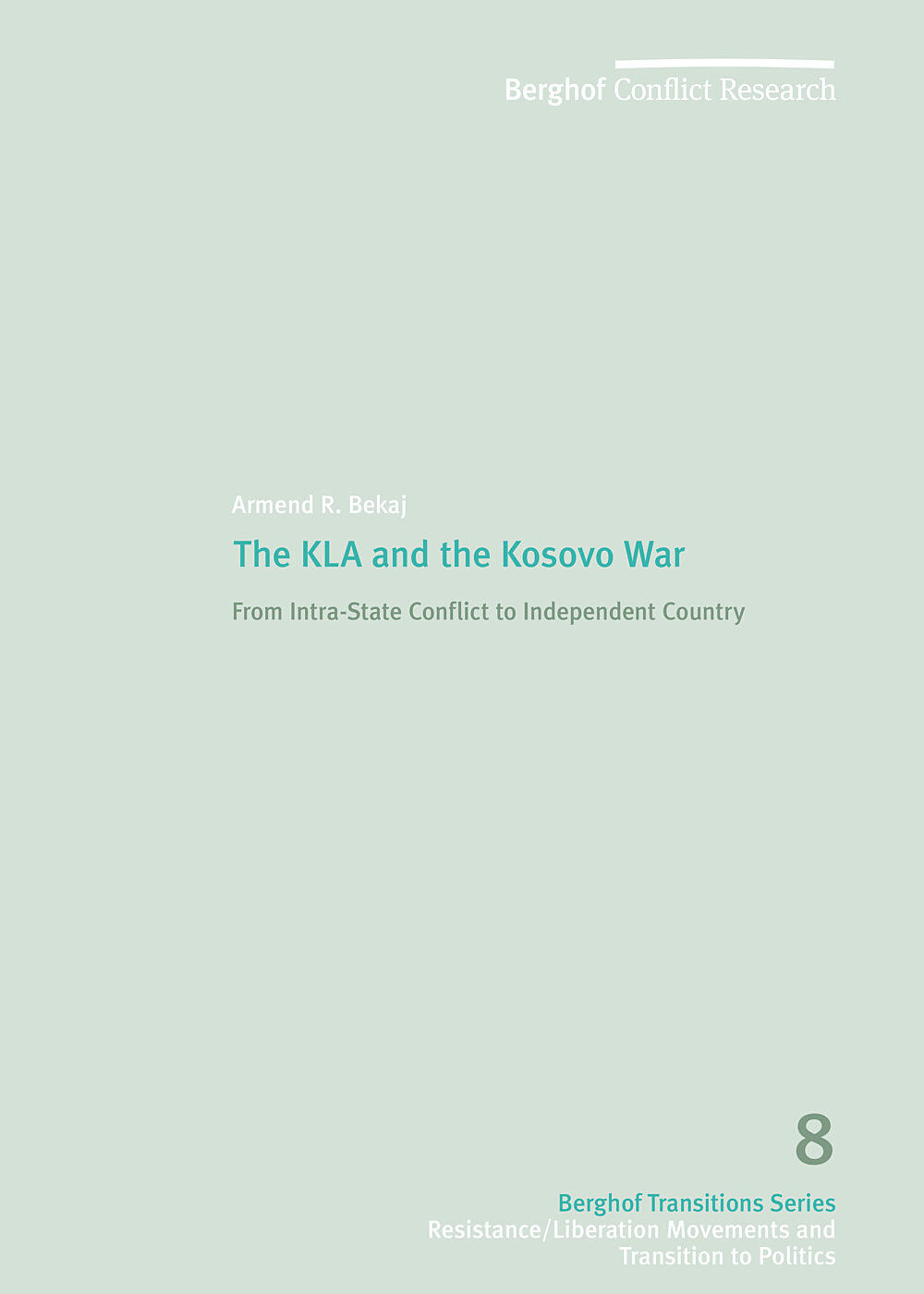
The KLA and the Kosovo War: From Intra-State Conflict to Independent CountryTransitions Series No. 8
The recent conflict in Kosovo is often referred to as a unique case study for several reasons: the factors that contributed to the sudden rise of the Albanians’ armed insurgency movement in the mid- to late-1990s; the heavy involvement of the international community, climaxing in the armed intervention of the North Atlantic Treaty Organisation (NATO) against a sovereign state – Serbia/Federal Republic of Yugoslavia (FRY); and the subsequent establishment of the international protectorate in Kosovo, led by the United Nations (UN) in concert with the NATO Kosovo Force (KFOR) and the widest array of international organisations to date. These unique circumstances, so the argument goes, have followed Kosovo’s political path, leading up to its declaration of independence. Along this path, international norms of self-determination and human rights versus those of national sovereignty and non-interference in internal matters have been invoked, tested and have even clashed repeatedly. The recent deliberations at the International Court of Justice (ICJ) at the Hague as to whether or not Kosovo’s declaration of independence is legal bear testimony to this clash.
- Year2010
- Author(s)Armend R. Bekaj
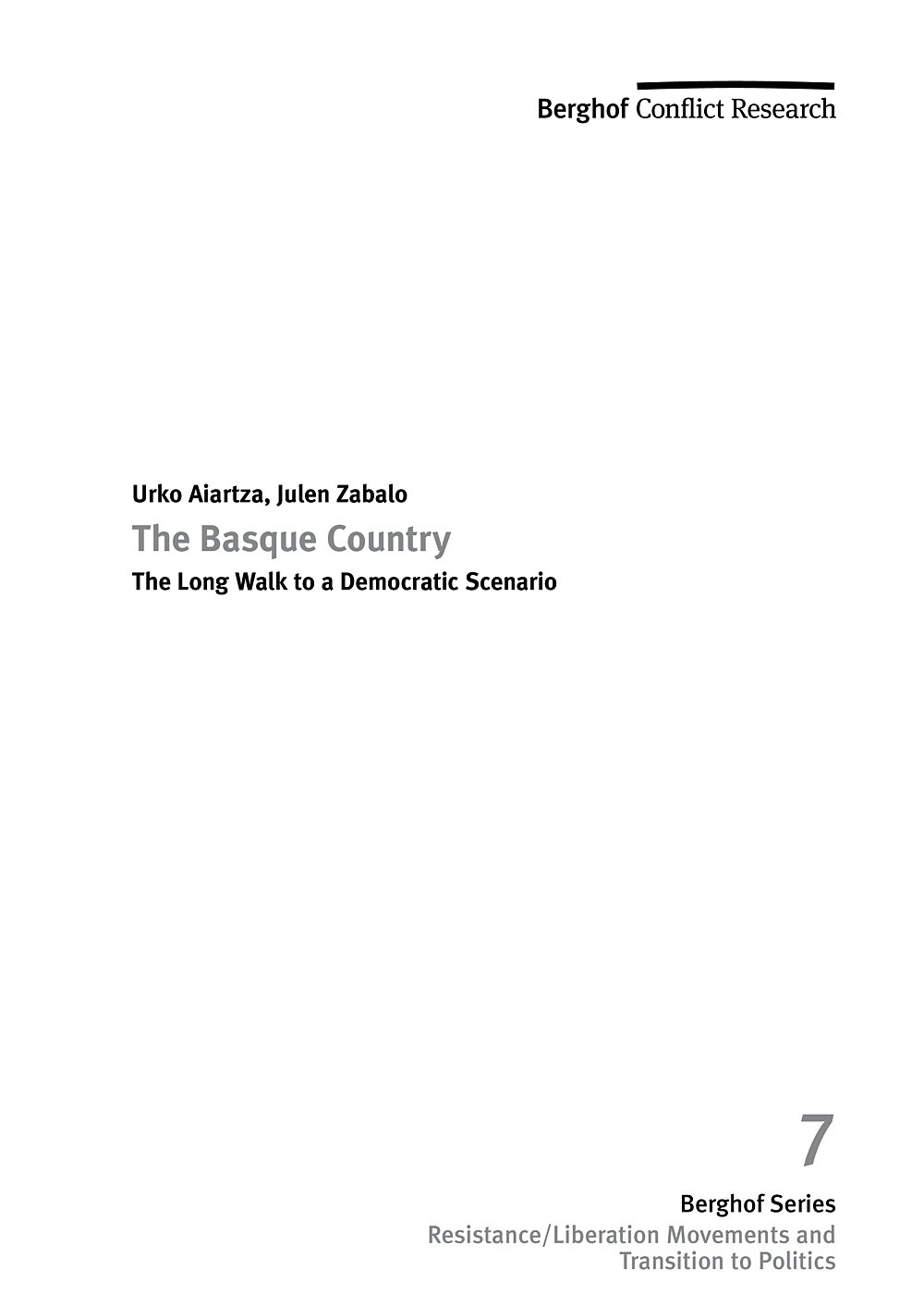
The Basque Country: The Long Walk to a Democratic ScenarioTransitions Series No. 7
The objective of the present study is to analyse the evolution of the conflict between the Spanish state and the Basque Country, from the creation of Euskadi Ta Askatasuna (ETA - Basque Country and Freedom) in 1958 to the present, from the point of view of the pro-independence forces. We will start with a quick overview of the origins of the conflict, before presenting the formation and development of the so-called “abertzale left” (Ezker Abertzalea) – which could be translated, and will be at times referred to here, as the patriotic left, nationalist left or pro-independence left. We will also look at the various phases of the search for a solution to the conflict through dialogue and negotiation. Although we will mention the relationship between the northern territories of the Basque Country and France as part of the historical analysis, we will not be studying the development of the nationalist and identity movement in the north. Instead, we will focus here on the conflict between the Spanish state and the Basque Country.
- Year2010
- Author(s)Urko Aiartza Azurtza, Julen Julen Zabalo
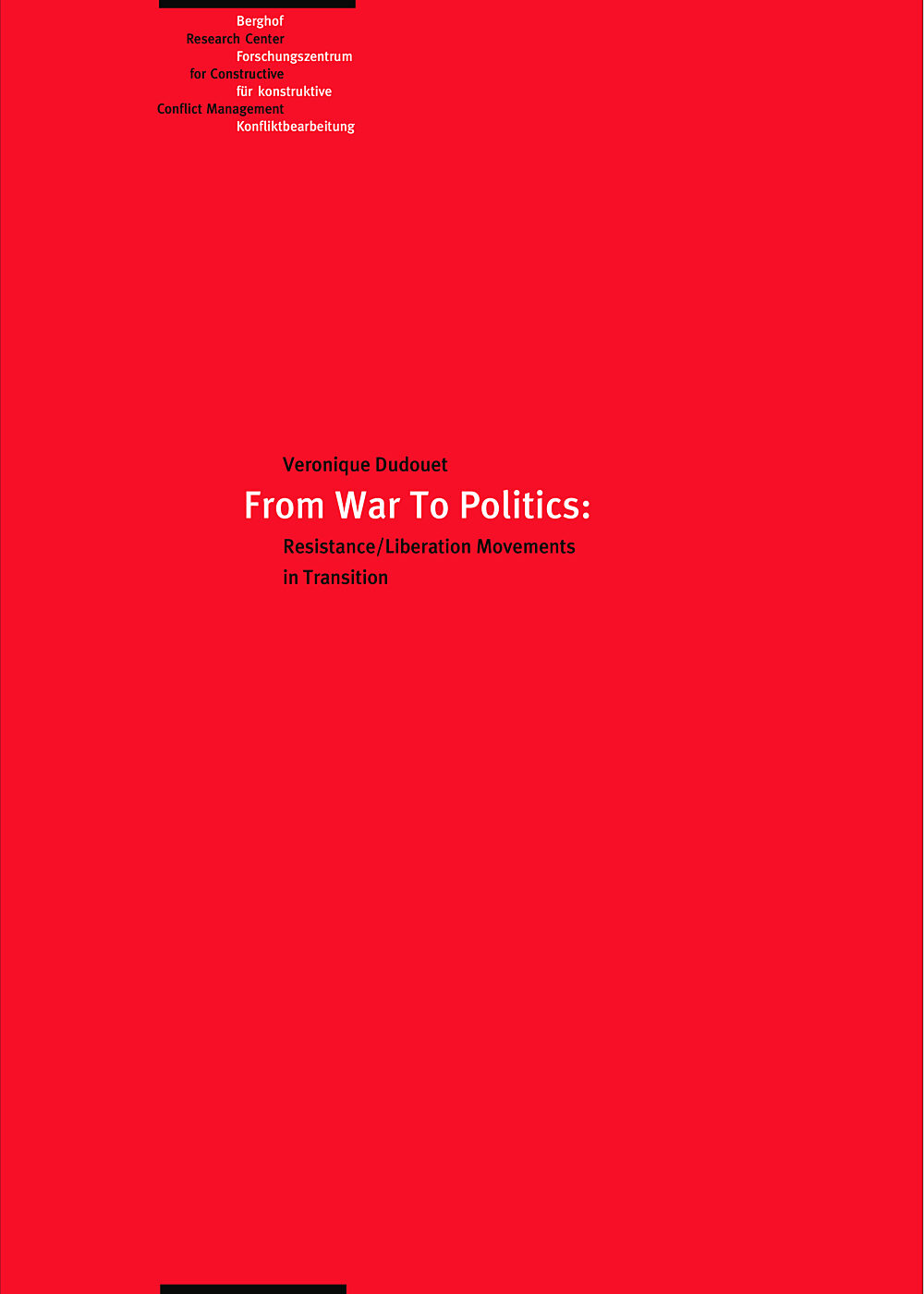
From War to PoliticsResistance/Liberation Movements in Transition (Report No. 17)
Recent experience around the world has demonstrated that resistance and liberation movements have become a defining feature of contemporary political conflicts, and that in the end, reaching political settlements needs their active involvement and cooperative engagement. The purpose of this report is to understand more fully how choices between violent and non-violent strategies are made to achieve certain political ends, which factors impact on these decisions, and conversely, how these choices affect conflict transformation and post-war reconstruction.
- Year2009
- Author(s)Véronique Dudouet
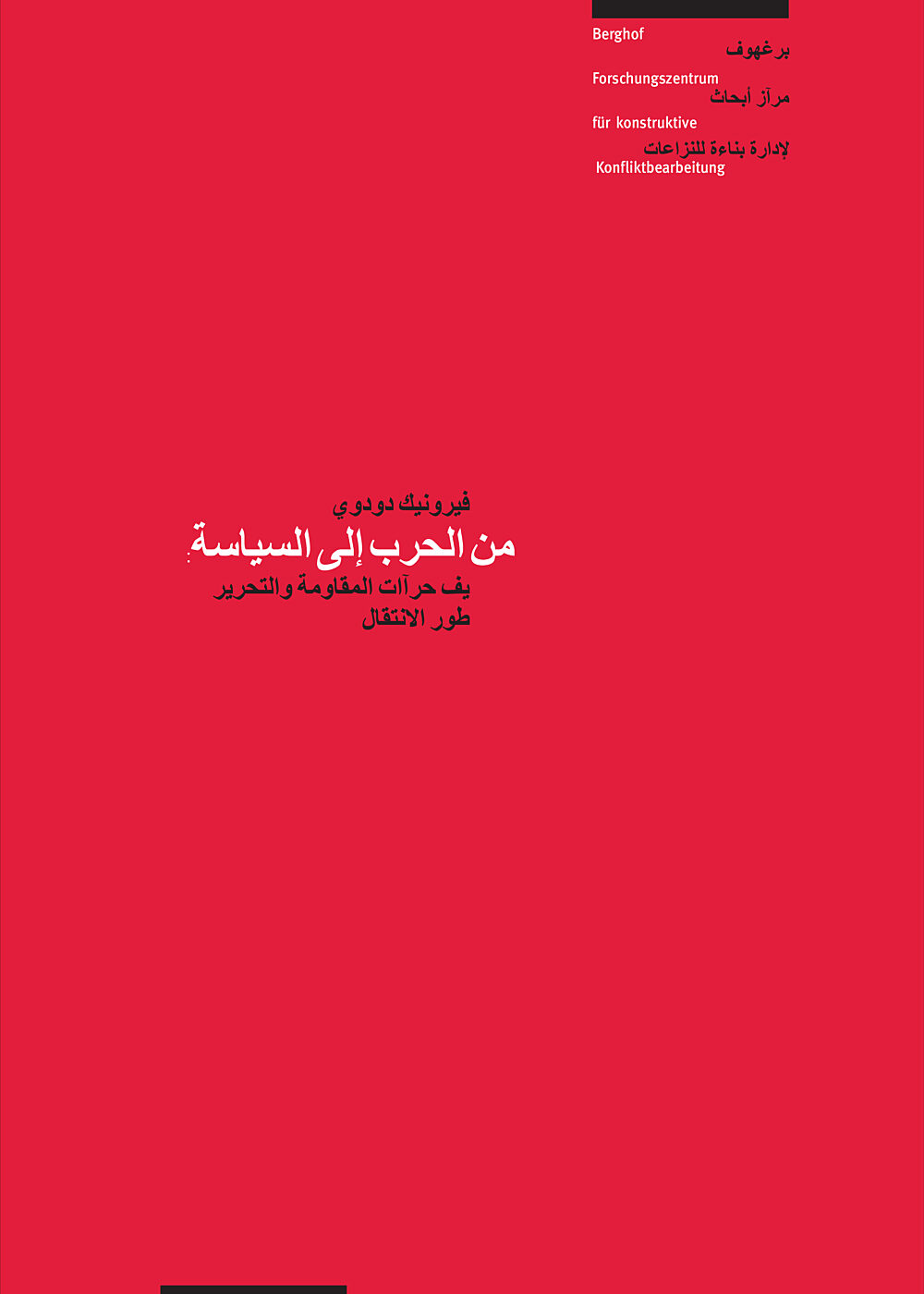
من الحرب إلى السياسةحركات المقاومة والتحرير في طور الانتقال
[ترجمة آلية الملخص]
أثبتت التجارب الأخيرة حول العالم أن حركات المقاومة والتحرير أصبحت سمة مميزة للصراعات السياسية المعاصرة ، وأن الوصول إلى تسويات سياسية في النهاية يحتاج إلى مشاركتها النشطة والمشاركة التعاونية. الغرض من هذا التقرير هو الفهم الكامل لكيفية اتخاذ الخيارات بين الاستراتيجيات العنيفة وغير العنيفة لتحقيق غايات سياسية معينة ، والعوامل التي تؤثر على هذه القرارات ، والعكس بالعكس ، كيف تؤثر هذه الخيارات على تحول الصراع وإعادة الإعمار بعد الحرب
- Year2009
- Author(s)Véronique Dudouet
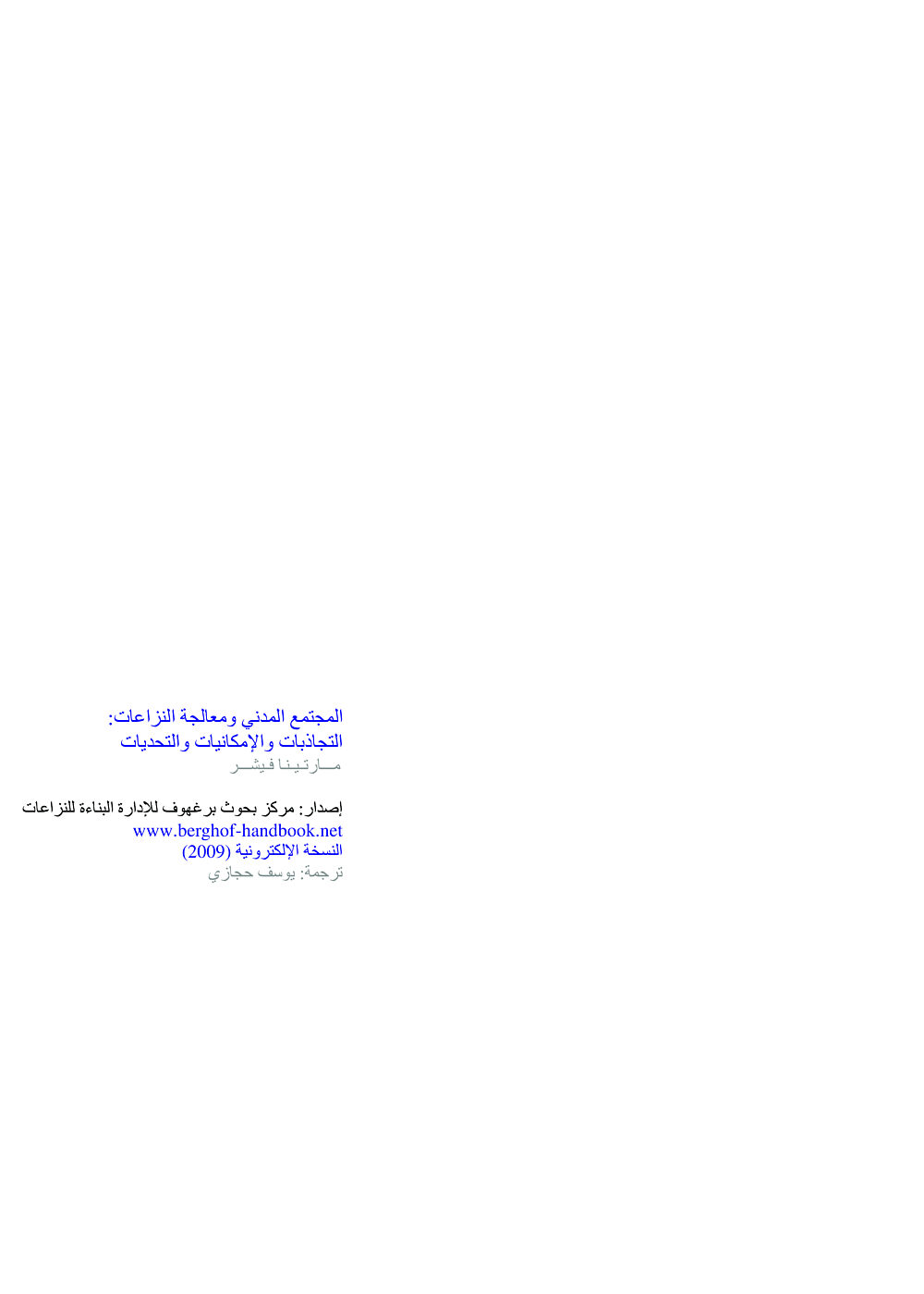
المجتمع المدني ومعالجة النزاعات: التجاذبات والإمكانيات والتحدياتHandbook Article
[الملخص المترجم آليًا]
يركز على المساهمة المحتملة التي يمكن أن تقدمها الجهات الفاعلة في المجتمع المدني لبناء السلام. الأسئلة المركزية هي: ما هي أنواع الأنشطة التي تقوم بها المنظمات غير الحكومية؟ ما هي المشاكل والمعضلات التي تواجه تطور المجتمع المدني في المجتمعات التي مزقتها الحروب؟ لنأخذ مثال البوسنة والهرسك ، ما هي حدود مساهمات المجتمع المدني ، وكيف يرتبط المجتمع المدني ببناء الدولة؟ وأخيرًا ، كيف تؤثر هذه الاعتبارات على المفاهيم النظرية لمصطلح "المجتمع المدني"؟
- Year2009
- Author(s)Martina Fischer
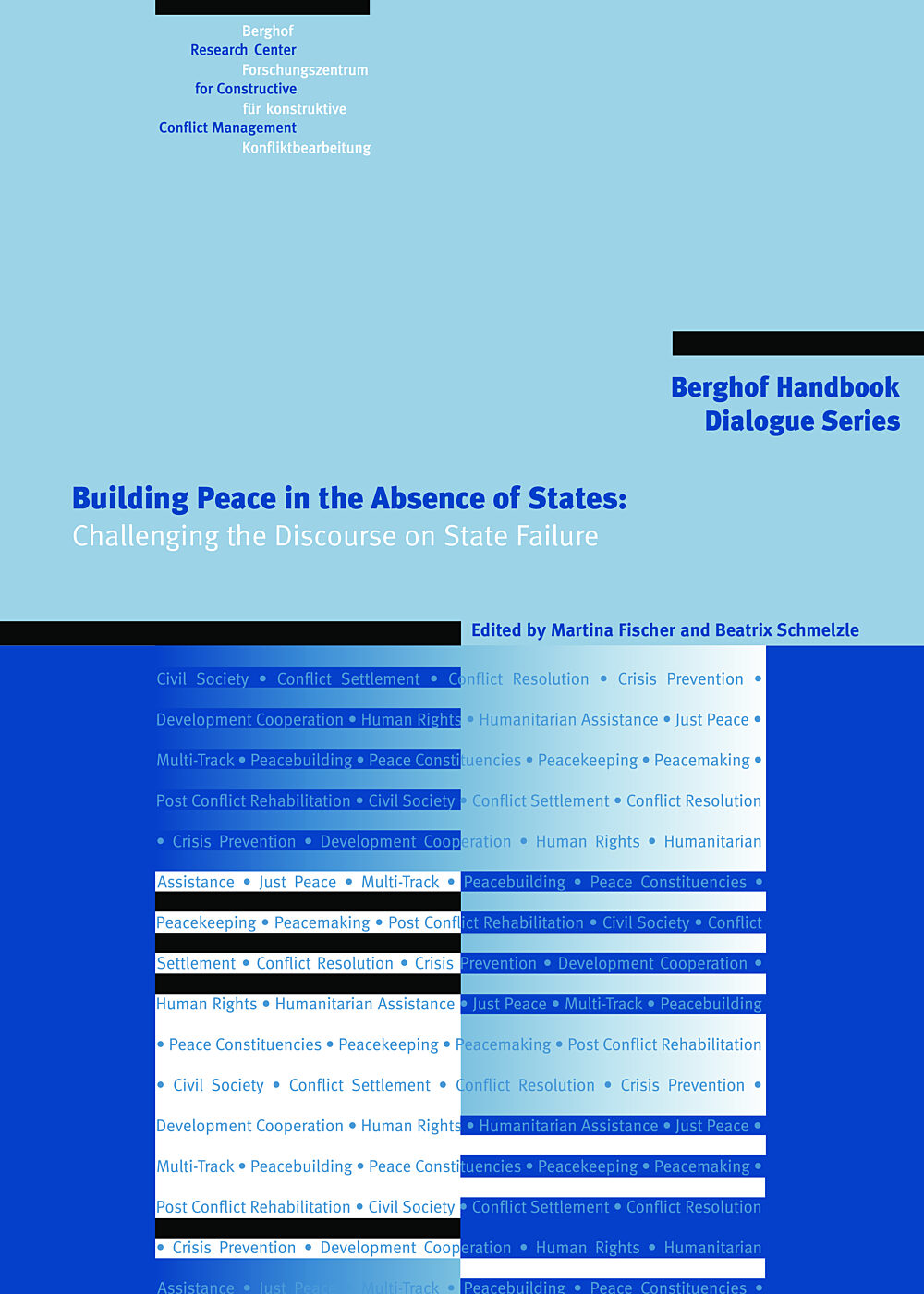
Building Peace in the Absence of States: Challenging the Discourse on State FailureHandbook Dialogue Series No. 8 - complete
The exchange between the lead authors and the discussants in this dialogue vividly illustrates the need to shift from a state-centric view, yet without entirely rejecting the notion of state. At the same time it shows the difficulties of integrating concepts of political order that do not correspond with the western-style Weberian/Westphalian state. Instead of advocating ideal-type, off-the-shelf models and blue-prints, the contributors to this dialogue argue that historically well-informed analysis, which leads to a deeper contextualized understanding of the local and regional situation on the ground, has to be the bedrock of any attempts for external assistance aimed at peace and development. They discuss evidence and counter-examples from Somaliland, Afghanistan, Liberia through to the Balkans and East Timor.
- Year2009
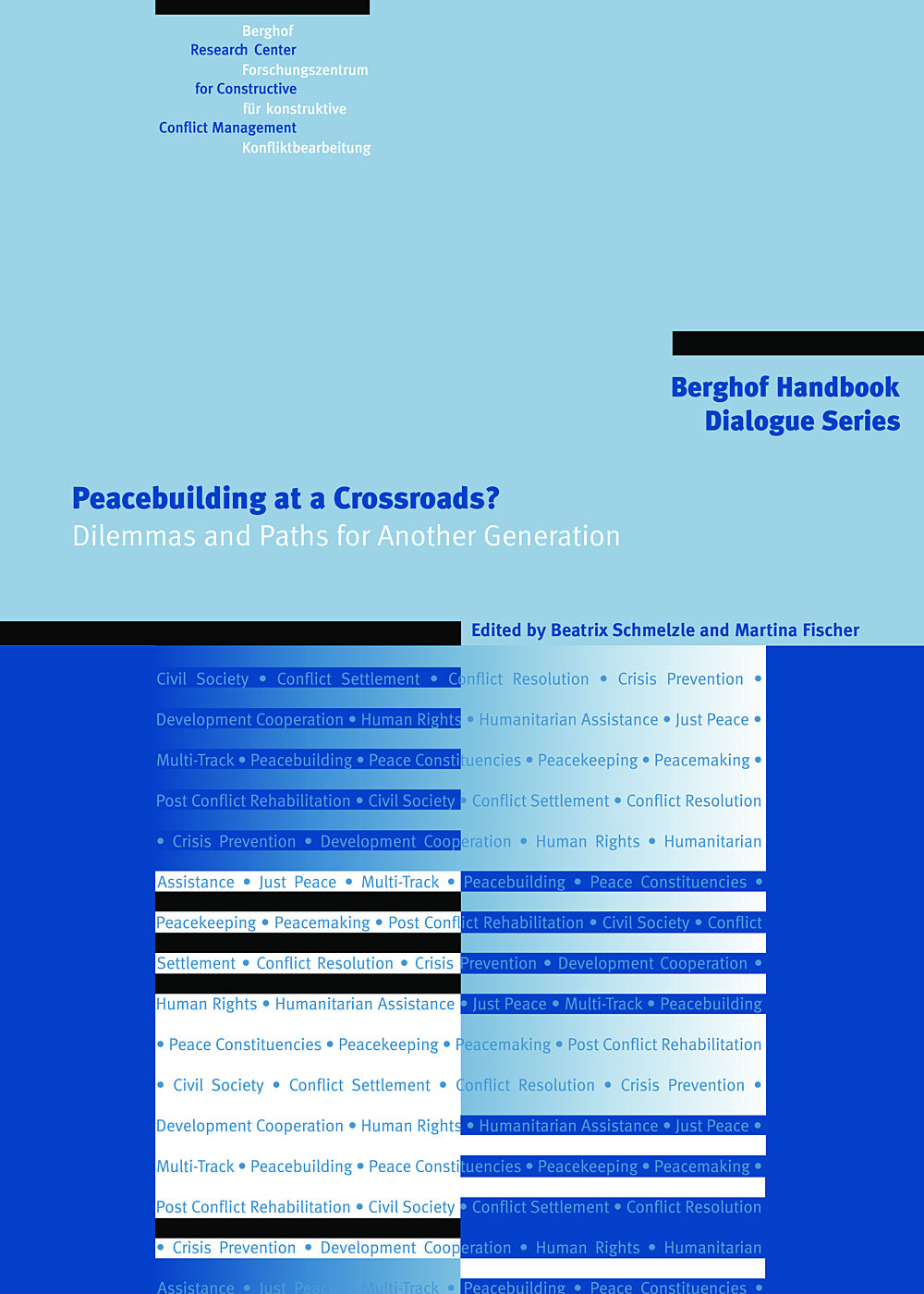
Peacebuilding at a Crossroads? Dilemmas and Paths for Another GenerationHandbook Dialogue Series No. 7 - complete
In this Dialogue, practitioners and researchers reflect on the conditions of success or failure in peacebuilding and conflict transformation. The lead article expresses a lingering worry that complex economic and environmental crises, international factors of violence and war, and an underlying 'murkiness' of values may overwhelm the best efforts for social change and create a feeling that we are “just wasting our time”. The comments emphasize that values and approaches - as well as the international context, power politics and injustice - should be the objects of critical analysis. Investment in learning, honest self-reflection and critical peace research appear to be a must for effective practice. Others stress a need for more effective public mobilization for the effective prevention of violence. Many additional questions are raised and present food for thought for an ongoing debate.
- Year2009
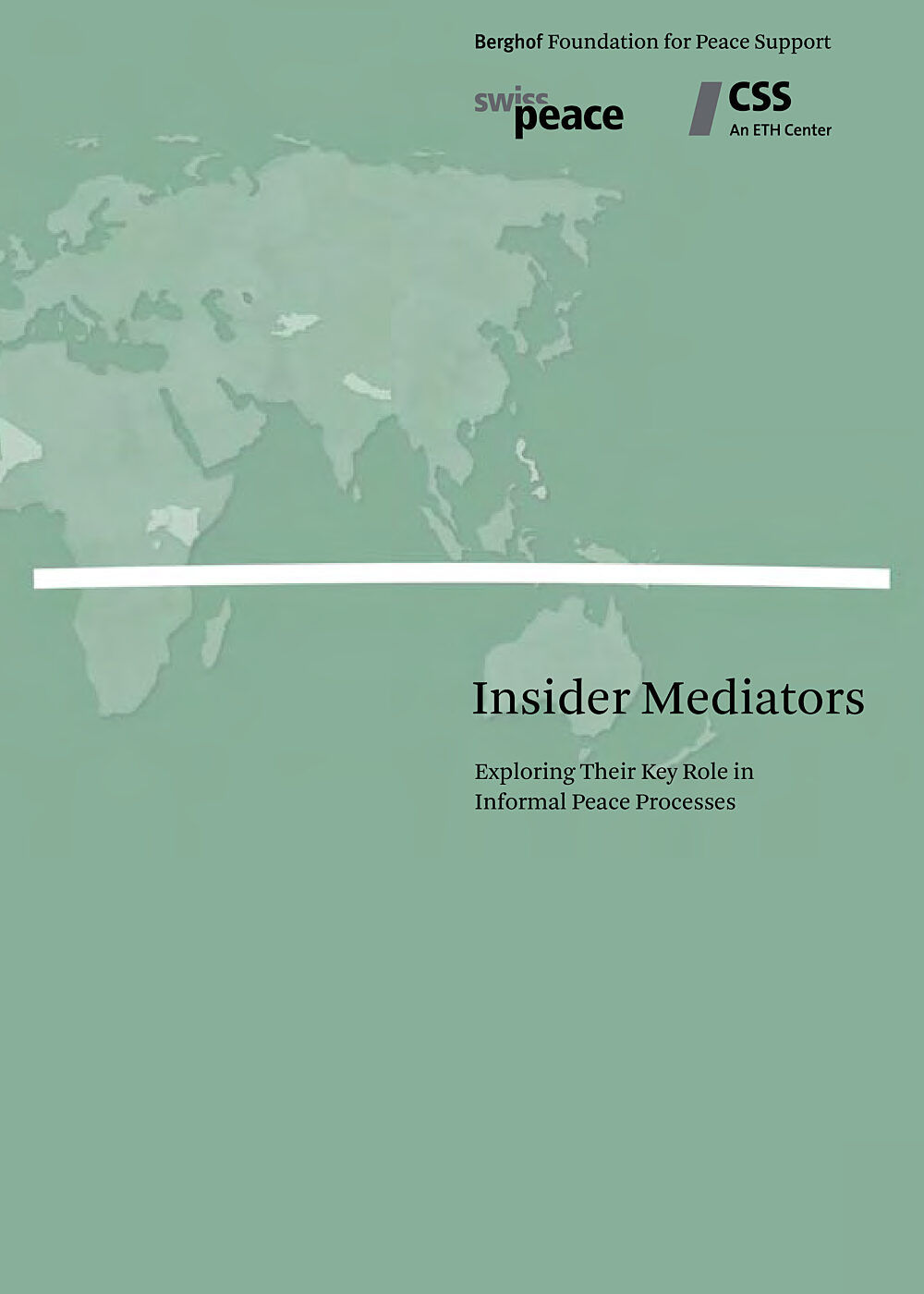
Insider MediatorsExploring Their Key Role in Informal Peace Processes
This report sheds light on a key set of actors in peace processes: insider mediators. It is based on the experience that most official peace processes are initiated or supplemented by informal, non-official peace processes, and that such processes are often facilitated by people from the conflict regions, with in-depth knowledge and great dedication to work on the conflict.
In order to explore the specific role, potential and limitations of local and regional “insider” mediators in today’s peace processes, the Berghof Foundation (then BPS) in cooperation with the Mediation Support Project of Swisspeace/CSS-ETH Zurich invited a dozen insider mediators from different parts of the world (Algeria, Burundi, D. R. Congo, Germany, Kenya, Kyrgyzstan, Macedonia, Mali, Mexico, Nepal, Philippines, Sri Lanka, Switzerland and Uganda).
- Year2009
- Author(s)Simon Mason
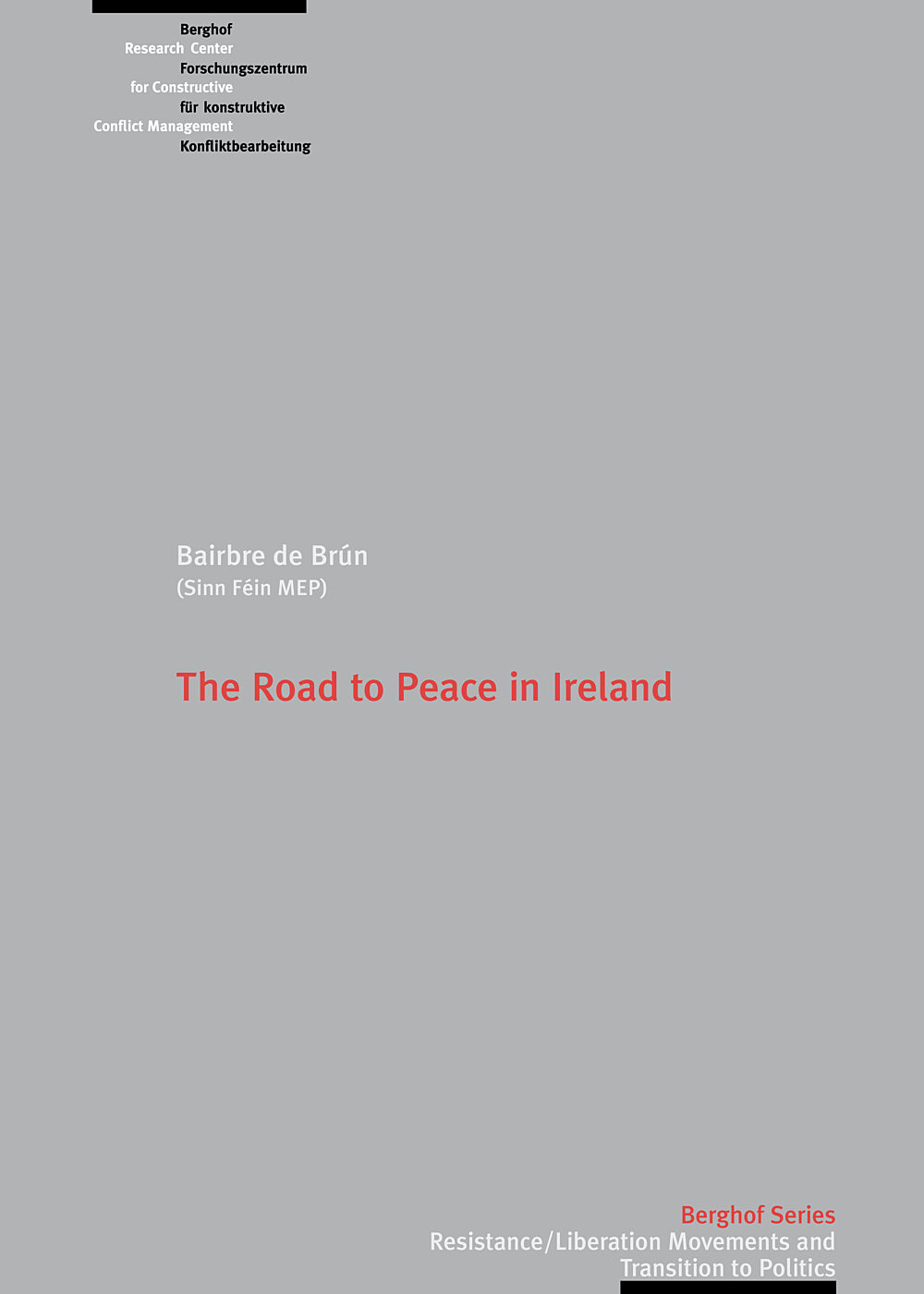
The Road to Peace in IrelandTransitions Series No. 6
The history of resistance to English/British interference in Ireland over eight centuries has gone through many different phases: passive resistance, agrarian unrest, armed uprising, setbacks, defeats and regroupings, temporary victories, mass movements and political agitation, language and cultural struggles, democratic gains, and constitutional and parliamentary engagement. The last is often the most challenging phase to any revolutionary movement.
- Year2008
- Author(s)Bairbre de Brún
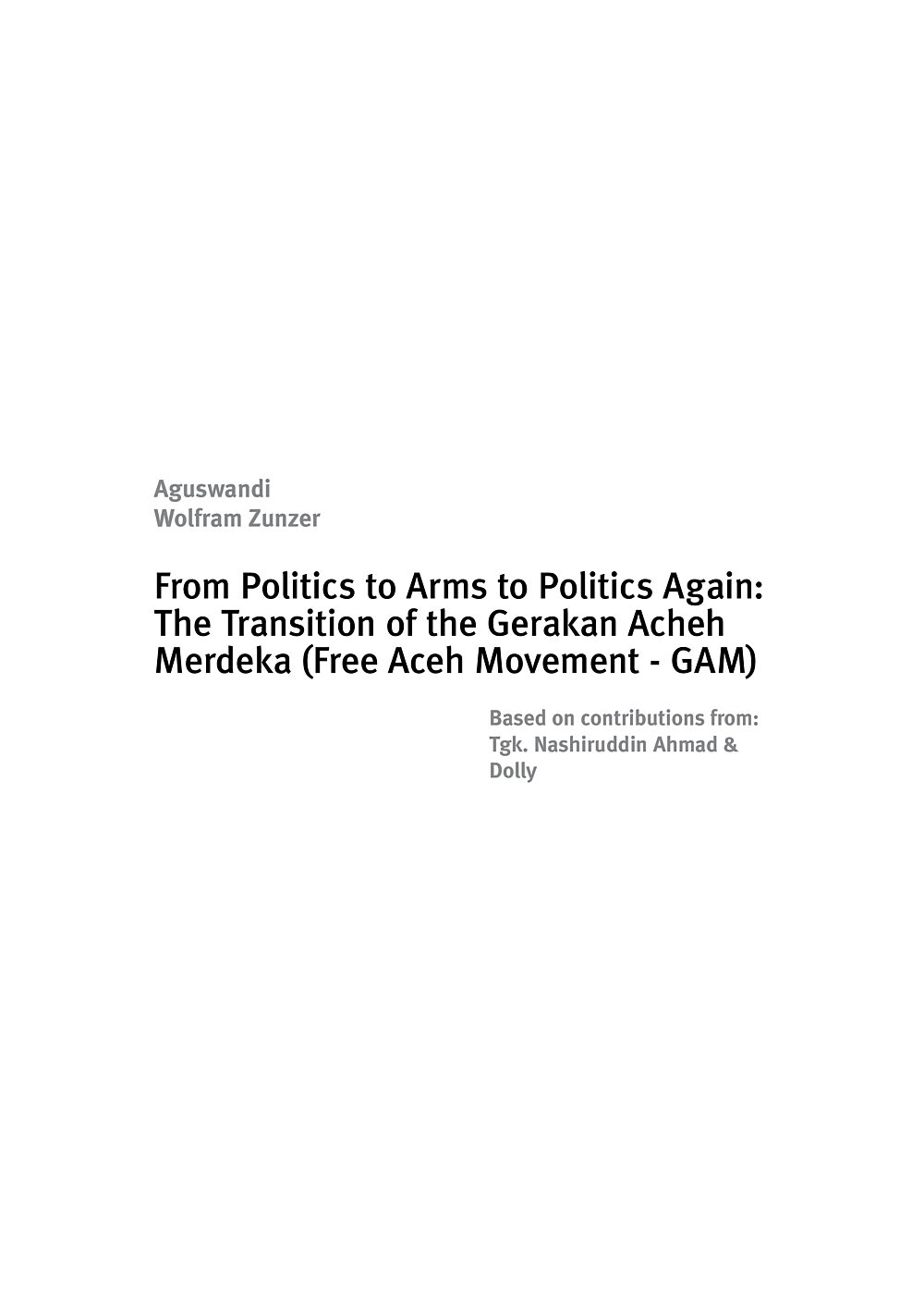
From Politics to Arms to Politics Again: The Transition of the Gerakan Aceh Merdeka (Free Aceh Movement - GAM)Transitions Series No. 5
The Acehnese and the Free Aceh Movement (Gerakan Acheh Merdeka, GAM) have always described the nature of their rebellion against the Indonesian state as ‘politics, not guns’. According to the GAM leadership, they decided to take up arms because it was the only language that was available to them in order to make the central government in Jakarta understand the situation in Aceh, an Indonesian province located at the northern tip of Sumatra Island. It was a political action to counterbalance the language of the enemy. The GAM leadership, both in Aceh and in exile, has maintained that the conflict was never about violence per se, but rather a political conflict that required a political solution. Consequently whenever the other party to the conflict, the Indonesian central government, has shown the political will to negotiate a political solution, GAM has always responded positively.
- Year2008
- Author(s)Agus Wandi, Wolfram Zunzer